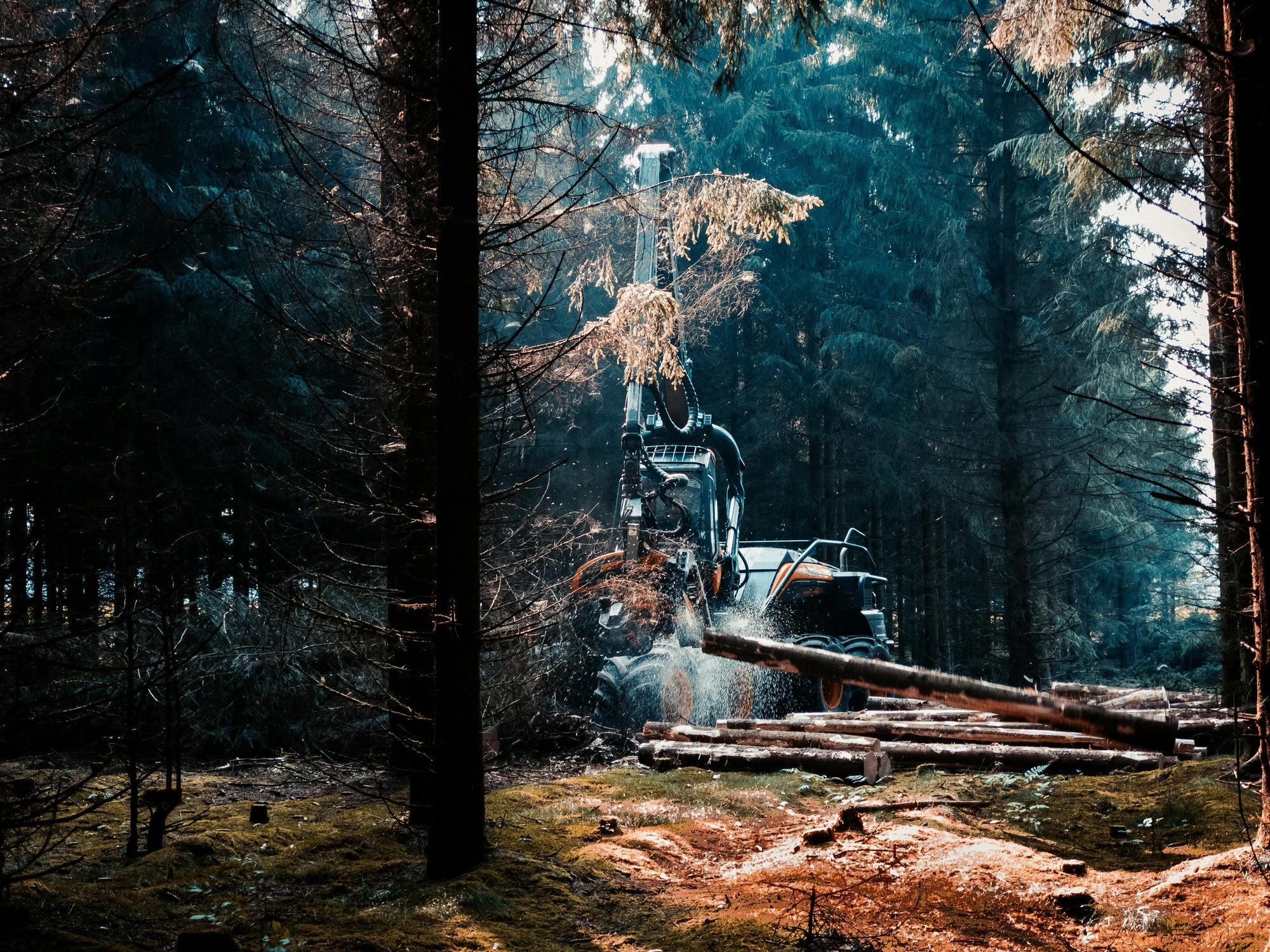When you’re tackling land clearing, forestry work, or vegetation management, the quality and type of mulching teeth you use can make or break your project. These components do the heavy cutting—turning brush, saplings, and trees into mulch—and the teeth you choose directly affects performance, longevity, and cost.
In this guide, we’ll walk through the pros and cons of two most common types of mulcher teeth—carbide and steel—and help you determine which is best suited for your machine and job site needs.
Understanding Mulching Teeth Materials
Mulching teeth are the consumable cutting elements on a forestry mulcher or brush cutter. Mounted to a rotating drum, they grind down vegetation into fine mulch. Choosing the right teeth ensures better efficiency, reduced downtime, and longer equipment life.
The two primary categories used for mulching teeth are:
-
Carbide Hammer (steel body with brazed tungsten-carbide inserts)
-
Steel Knife (sharpened, heat-treated, alloy steel)
Each option has its own strengths and is designed for different types of applications and terrains.
What Are Carbide Mulching Teeth?
Carbide mulching teeth are built for durability and long-term performance. These teeth are made with tungsten carbide tips—an extremely hard material known for its resistance to wear and high-impact cutting.
Advantages of Carbide Mulcher Teeth
Carbide mulcher teeth offer several key advantages, making them ideal for demanding tasks. One of the primary benefits is their exceptional durability, especially in hard, abrasive, or a variety of other conditions. The carbide tips maintain their cutting edge even in rocky or dense conditions, allowing for more consistent cutting with fewer interruptions. This durability leads to reduced downtime since carbide teeth require less maintenance and fewer replacements compared to their steel counterparts.
Disadvantages of Carbide Mulcher Teeth
However, carbide teeth do have some drawbacks. They come with a higher upfront cost than steel, which may be a consideration for those working with a tight budget.
Ideal Use Cases for Carbide Mulcher Teeth
These teeth are best suited for rocky or abrasive terrain, where their durability can truly shine. They also perform well in areas with dense brush, hardwoods, or thick vegetation. For commercial or frequent land clearing operations, carbide mulcher teeth are often the go-to choice due to their long-lasting performance in tough conditions.
What Are Steel Mulching Teeth?
Steel mulching teeth are typically made from heat-treated alloy. High quality knives have good hardness and toughness along with their characteristic sharpness, making them a popular choice for general-purpose mulching and less extreme environments.
Advantages of Steel Mulcher Teeth
Steel mulcher teeth offer a number of advantages, making them an appealing option for certain applications. One of the biggest benefits is their lower initial cost, which can be a key factor for those working with a tight budget. Additionally, they are easy to sharpen and maintain with a proper grinder, allowing for straightforward upkeep in the field.
Disadvantages of Steel Mulcher Teeth
Steel teeth tend to wear out faster, particularly in abusive terrain, meaning they may require more frequent replacements compared to carbide. Furthermore, steel teeth generally require more maintenance and sharpening to keep them performing at their best, which can lead to additional downtime.
Ideal Use Cases for Steel Mulcher Teeth
Steel teeth are ideal for light brush and smaller diameter tree sites, where they are less likely to hit rocks or turn soil. For infrequent or seasonal mulching jobs, steel is often the more cost-effective and practical option.
Key Differences: Carbide vs. Steel
To help you decide, here’s a quick side-by-side comparison:
|
Feature |
Carbide Mulching Teeth |
Steel Mulching Teeth |
|---|---|---|
|
Durability |
Very high; ideal for harsh conditions |
Moderate; wears faster in tough terrain |
|
Cost |
Higher upfront investment |
More budget-friendly |
|
Maintenance |
Low |
Requires regular sharpening |
|
Impact Resistance |
Hard and tough; prone to chipping if misused |
Hard and sharp, more forgiving on impact |
|
Performance |
Slower, varying mulch quality |
Faster, fine mulch |
|
Best Terrain |
Rocky, abrasive, dense vegetation |
Soft, light, or non-abrasive terrain |
How to Choose the Right Teeth for Your Project
When choosing between carbide and steel mulching teeth, several factors should guide your decision. Terrain type is one of the most important considerations. If you're working in rocky or abrasive environments, carbide teeth are the better investment due to their reduced downtime. On the other hand, steel teeth are typically sufficient and more cost-effective for most vegetation conditions.
Frequency of use also plays a role. For frequent or commercial applications, carbide is the preferred choice thanks to its longevity and lower maintenance needs. However, for occasional or seasonal users, steel may offer better value given its lower upfront cost.
Your budget can further influence the decision. While carbide comes with a higher price tag, it can lead to long-term savings by reducing replacements and downtime. Steel, by contrast, is ideal for faster, easier jobs where downtime is less of a concern.
Lastly, always consider machine compatibility. Not all mulching teeth are designed to fit every type of mulching head, so it’s essential to verify compatibility with your equipment specifications before making a purchase.
Conclusion: Carbide or Steel?
Ultimately, the best mulching teeth for your project depend on your terrain, usage, and budget. Carbide mulching teeth offer unmatched durability for tough jobs, while steel mulching teeth provide a reliable, economical option for lighter applications.
Choosing the right teeth not only improves efficiency but also extends the life of your equipment—saving you time and money in the long run.
If you're looking for mulcher teeth, Werewolf Parts. Browse our selection today to find the perfect fit for your needs.

